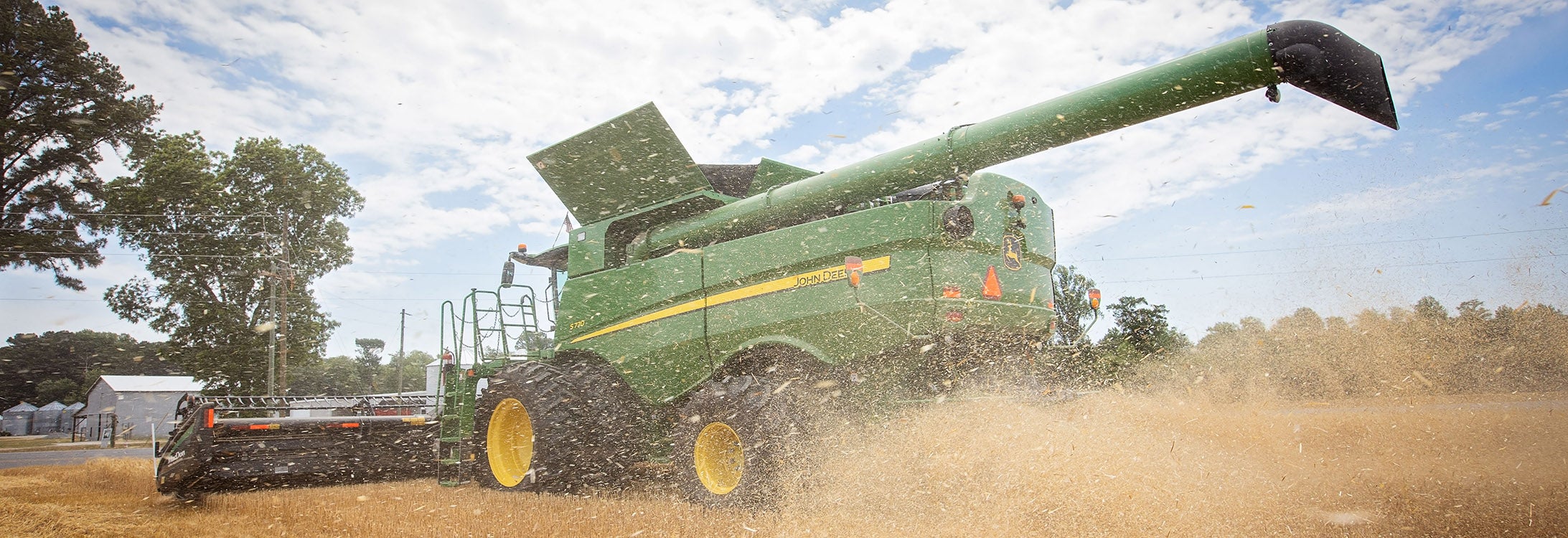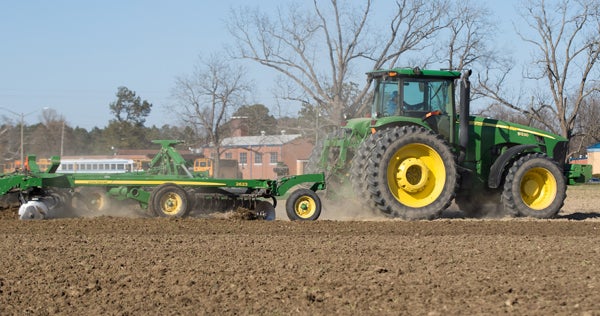THE EFFECT
On the rare occasions when farmers are able to leave their land, they are never truly separated from their farms.
“They’re usually going to a farm organization meeting, a farm commodity meeting or they’re calling back constantly to check on the condition of their animals or their crops,” said Dr. Robin Tutor Marcom, ECU faculty member and director of the North Carolina Agromedicine Institute. “So they are never truly separated from their farms; it’s a 24/7, 365-day relationship. That puts them in a place of danger that others who are not from the farms just cannot understand.”
This means the “live, work and play” aspects of farmers’ lives often overlap.
“Because everything is so closely linked within agriculture, very often work and relationships are lumped into one,” said Angela Kirkwood, a British hog farmer. “You live on the farm, you work on the farm. It’s your whole life. It then makes it really difficult if you are struggling.”
While his friends are going out on the weekends or taking out-of-town vacations, Archie Griffin – a 29-year-old, third-generation farmer from Washington, North Carolina – is usually confined to his family’s farm because there is important work to be done.
Weddings. Holidays. Birthday parties. They all take a backseat to getting the crops out.
“That is extremely difficult, because you feel it emotionally and you feel it mentally. And it’s stressful not only on yourself, but it’s stressful on the family,” Griffin said. “In the evenings, I don’t get to go in and spend time with my wife. I go in, get a bite to eat and then I’m going back out to work until my body and my mind can’t work any longer.”
This takes a toll on the family dynamic, Griffin said.
“We realize sacrifices have to be made and somebody has to make those sacrifices. But it does take a huge toll,” he said. “Because when one person is down emotionally, it generally brings other people down as well. That’s just human nature.”
School administrators and health care providers in rural areas say children of farmers also face different stress than children in urban or suburban areas.
“When there is bad weather, that can completely turn around an economic situation for a farming family. And when kids are facing things at home that are troubling, that is going to impact their academic success,” said Dr. Ben Thigpen, assistant superintendent for federal programs, student support and athletics for the Duplin County School District.
These concerns extend beyond just the farmers and their families.
A nurse working with the North Carolina Agromedicine Institute recently attended a cattleman’s meeting in the state during which farmers expressed feelings of guilt after one of their fellow members committed suicide.
“They thought that they should have been able to recognize symptoms and be able to help that farmer to have prevented that,” Tutor Marcom said.
This is why the institute’s efforts target more than just at-risk farmers, but also their families and communities.
“We want to increase awareness so people can reach out when they see folks in trouble. And if there is a case where the suicide has been completed, we can be of service to the survivors so there is not survivor remorse,” Tutor Marcom said. “We want farmers to know that communication is not a sign of weakness.”

